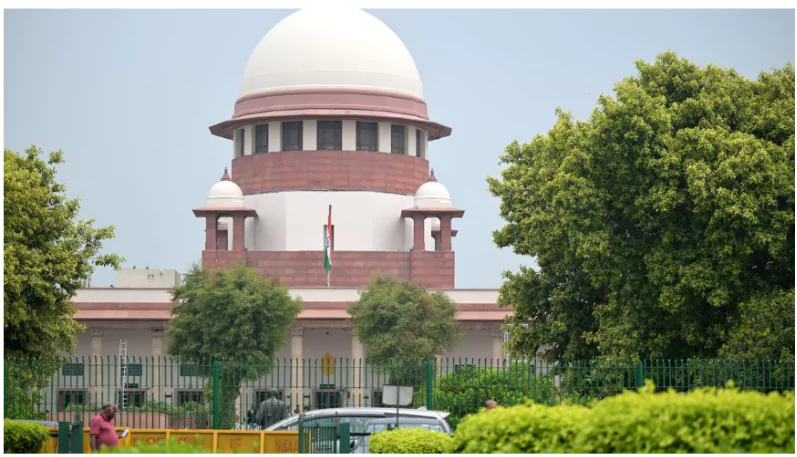The Union Cabinet declared that the principle of the creamy layer does not apply to reservations for Scheduled Castes (SCs) and Scheduled Tribes (STs).
It is emphasised that this decision aligns with the Constitutional provisions established by Babasaheb Bhim Rao Ambedkar.
Supreme Court Judgment

- Supreme Court Ruling:
- Recently, a seven-judge Bench of the Supreme Court in a 6:1 majority decision, allowed sub-classification by the state government within Scheduled Castes (SCs) and Scheduled Tribes (STs) to enhance affirmative action benefits.
- It was emphasized that such sub-classification must be based on “quantifiable and demonstrable data” rather than political motives.
- The judgment aimed to uplift the more underprivileged castes within the SC category.
- Creamy Layer Observations:
- Justice B.R. Gavai, in a concurring judgment, suggested that States should develop a policy to identify the creamy layer within SC and ST categories and exclude them from reservations.
- However, this was an observation and not a binding part of the decision.
Enroll now for UPSC Online Classes
Status of SC and ST Communities in India
- SC stands for Scheduled Castes, historically known as “untouchables.”
- ST stands for Scheduled Tribes, often residing in remote areas and facing social and economic challenges.
Key Socio-economic status of SCs and STs
- HDI Improvement: Significant progress, but still below the national average.
- Literacy: Increased from 52% (1991) to 74% (2011).
- School Dropouts: Dropped to 2.54% in 2020-2021.
- Health: Infant mortality reduced from 86 (1992) to 35 (2016).
- Female Literacy: SC women’s literacy rose from 42% to 56.5% (2001-2011).
- Housing: Ongoing issues with access to clean water and sanitation.
- Employment: Higher dependence on informal labor, low formal sector representation.
Impacts of sub-classification within SCs and STs
- Positive Impacts
- Equitable Distribution: Ensures fair share of reservation benefits to the most disadvantaged sub-groups.
- Enhanced Social Justice: Makes affirmative action policies more inclusive and equitable.
- Improved Representation: Leads to better representation of marginalized sub-groups in various sectors.
- Addressing Historical Inequities: Provides additional support to historically marginalized sub-groups.
- Challenges
- Complex Implementation: Requires accurate data which makes the process complex and resource-intensive.
- Intra-Community Tensions: May lead to conflicts within SC and ST communities.
- Legal and Policy Hurdles: Faces potential legal challenges and may need policy changes.
Way Forward
The socio- economic condition of SCs and STs are low and this condition can be resolved if the government takes steps in this regard.
- Welfare policies: Government should develop such welfare schemes that cater to the needs of these groups.
- For this, there should be high inclusion of community representatives in the policy making process.
- Economic Empowerment: Government should increase support systems for these communities such as scholarships and specialised schools.
- Legal and Institutional support: Enforce laws and regulation that protects the interests of these communities.
- In addition to it, ensure that all institutes supporting SCs and STs are funded and staffed.
Check Out UPSC NCERT Textbooks From PW Store
Creamy Layer
- The “creamy layer” concept identifies the wealthier and better-educated individuals within socially and educationally backward classes, like OBCs.
- These individuals, having achieved higher socio-economic status, are excluded from reservation benefits in jobs and education.
- This ensures that affirmative action benefits reach those who are truly disadvantaged.
|
Constitutional Rights for the Scheduled Castes and Scheduled Tribes
-
Abolition of Untouchability
- Article 17:
- Abolishes untouchability in all forms.
- Addresses not just physical avoidance but a broader range of social sanctions.
-
Promotion of Educational and Economic Interests
- Article 46:
- Promotes the educational and economic interests of SCs, STs, and other weaker sections.
- Aims to protect these groups from social injustice and exploitation.
-
National Commission for Scheduled Castes
- Article 338:
- Establishes the National Commission for Scheduled Castes.
- Functions include:
- Investigating and monitoring constitutional and legal safeguards for SCs.
- Evaluating the effectiveness of these safeguards.
- Addressing specific complaints regarding violations of SC rights and safeguards.
-
National Commission for Scheduled Tribes
-
- Article 338-A:
- Establishes the National Commission for Scheduled Tribes.
- Functions similarly to the National Commission for Scheduled Castes, focusing on the rights and safeguards of STs.
These provisions highlight the Indian Constitution’s commitment to ensuring equality and protecting the rights of marginalized communities. |
![]() 13 Aug 2024
13 Aug 2024
